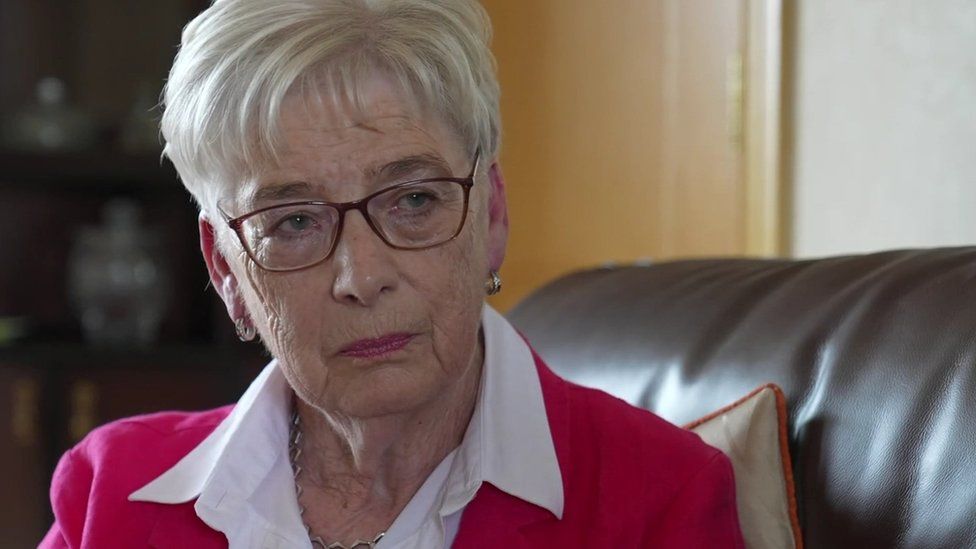ARTICLE AD BOX
By Enda McClafferty
BBC News NI political editor

Iris Moffitt-Scott's husband Malvern was shot in his tractor in 1983.
The widow of a farmer murdered by the IRA has warned the government not to "trample" on victims as MPs prepare to vote on the government's Troubles legislation.
The bill offers an amnesty to those accused of killings and other Troubles-related crimes.
The debate and vote comes almost to the day that Iris Moffitt-Scott marks the 39th anniversary of her husband Malvern's murder.
He was shot in his tractor in 1983.
No one has ever been convicted for the murder of the 36-year-old father-of-four, who was cutting hedges near Omagh at the time.
The roots of Northern Ireland’s Troubles lie deep in Irish history
The killing was blamed on the IRA.
"That day Malvern put my youngest son on the bus for his first day at school and he never saw his daddy alive again," said Mrs Mofitt Scott.
"He was a 36-year-old farmer doing a day's work when he was murdered by republican terrorists.
"Those brave men who shot an unarmed civilian in the back, never had the courage to admit to the murder."
The government's contentious Troubles legacy bill is starting its committee stage in the Commons, meaning amendments can be debated in the chamber. NI Troubles legacy bill published by UK government
The Democratic Unionist Party (DUP), Alliance and SDLP oppose the bill, and have put forward proposals but not all will be chosen for a vote.
Mrs Moffitt-Scott said victims across Northern Ireland were not even an "after thought" for the government.
"I would ask the British government to put victims where they should be and don't trample on them and don't treat them differently than victims of terrorism in any other British city," she said.
"I would invite Boris Johnson to look at my children and grandchildren in the eye to see the impact and the suffering of putting terrorists before victims."
'No victims support this'
Mrs Moffitt-Scott also said the focus should remain on the lack of truth coming from the IRA and Sinn Féin about what happened during the Troubles.
Meanwhile, the niece of a Belfast school girl who died after being hit by a plastic bullet fired by a soldier also criticised the government's Troubles bill.
Charlotte McCurry, who's aunt Julie Livingstone was killed in 1981 at the age of 14, said "truth and justice" were vital for reconciliation and to allow people to move forward.
"No victims support this and I don't think anybody wants an amnesty for those who were involved in murder during the Troubles," she said.
Charlotte McCurry's aunt Julie Livingstone was killed in 1981 at the age of 14
Ms McCurry said her family had given up hope of ever getting justice, but she said files on the case have been locked by the government until 2064, which she said was unacceptable.
"By then my aunt's brother and sisters will no longer be around, but we are determined to carry on the fight for Julie," she said.
Ms McCurry joined a number of other relatives of victims at Westminster on Tuesday night for a production of victims' testimony.
It was hosted by the SDLP leader Colum Eastwood.
"We felt it was important to let MPs hear at first hand about the victims and how their families have suffered in the hope it may influence how they vote on this bill" explained Ms McCurry.

 2 years ago
56
2 years ago
56








 English (US) ·
English (US) ·